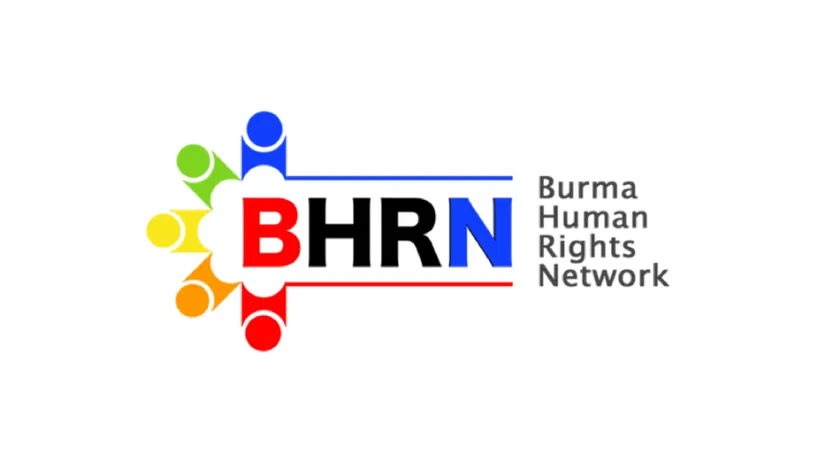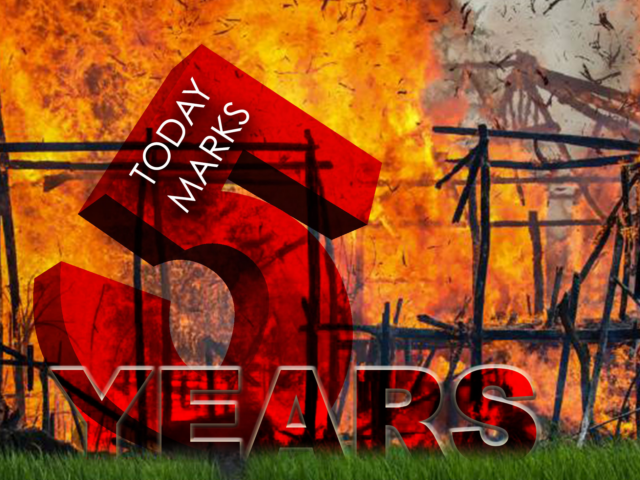Five Years Since the Rohingya Genocide and Impunity Remains Nearly Absolute
25 August 2022


Today marks five years since the Myanmar military launched a campaign of killings, mass rape and arson against the Rohingya in northern Rakhine State, killing thousands and forcing over 730,000 to flee to Bangladesh under NLD government. In the five years since the military’s atrocities, the situation for Rohingya in Myanmar and abroad offers a dismal reflection of justice delayed.
“The world must act decisively if they want to end the suffering of the Rohingya and the rest of Burma’s people. For decades the international community has discussed ways to improve the humanitarian situation in Burma, and the obstacle has always been the military government. There is no point in pretending otherwise. Every political and economic tool that can be used to dislodge the military from power must be utilised. If the world continues to drag its feet, we will only witness new refugee crises and humanitarian disasters at the hands of an illegitimate military junta for decades to come”, said BHRN’s Executive Director Kyaw Win.
Nearly 600,000 Rohingya remain trapped in Rakhine state under discriminatory laws and policies that amount to crimes against humanity and ongoing genocide. Since the attempted military coup on 1 February 2021, Rohingya have been subjected to tightened restrictions on their fundamental freedoms and are increasingly at risk of being subjected to further atrocity crimes.
Rohingya who have fled Myanmar and managed to reach Thailand, Malaysia, Indonesia, or India live under the constant threat of arrest, detention, and forced return to military-controlled Myanmar. In Bangladesh, one million Rohingya refugees who were forcibly displaced by the Myanmar military, remain in sprawling refugee camps in southern Bangladesh’s Cox’s Bazar, where they have been subjected to discrimination and denied basic rights and adequate access to services, including education and healthcare.
The coup has made clear that the ongoing atrocities in Myanmar are a direct consequence of a military that for decades has faced no consequences for its crimes. Despite the longstanding evidence of widespread and systematic human rights violations, impunity remains nearly absolute. Impunity has been particularly enabled by the UN Security Council’s inaction on Myanmar, with Russia and China resisting any substantive action. Even in the face of serious violations of international law, the political dynamics of the Council have shielded Myanmar from any real consequences. ASEAN has also remained paralysed. Under its principle of noninterference, ASEAN has chosen to reject thousands of civilians seeking refuge from the military’s brutality and continues to engage with the military. This is the same approach it took in 2017, when it refused to condemn the military’s genocidal campaign against the Rohingya despite Malaysia and Indonesia raised strong voice.
The Government of Bangladesh has done a great service by openings its borders to refugees, and they deserve acknowledgment for the countless lives they’ve saved. Yet, it is critical that conditions for those living in the refugee camps improve without interference by Bangladesh authorities. Most vital is access to education. The Rohingya children in these camps have extremely limited access to education, and authorities have shut down the makeshift and informal schools throughout the camps without offering any alternative. Those living in the camps are also largely prohibited from seeking any form of education outside of the camps, other than in rare cases where refugees can get special permission. Without access to education and vocational services, an entire generation will have had their futures robbed. Undoubtedly, Bangladesh government saved hundreds of thousands Rohingya lives but denying education is killing their soul. Bangladesh must cooperate with domestic CSOs and human rights organisations in the camps to provide reliable education, including the Burmese curriculum, and to host courses for trauma, which the vast majority of refugees suffer with. The international community must support these efforts and help create a situation where Bangladeshis may also find employment opportunities.
So long as the Myanmar military enjoys complete impunity for their actions, unyielding oppression of the Rohingya and other minorities will continue unabated. The time to close this impunity gap is now. The Burma Human Rights Network (BHRN) calls on UN member states to take all possible measures to hold General Min Aung Hlaing and other senior military leaders who bear responsibility for atrocity crimes accountable for their crimes and to cut off the military from all revenue and weapons allowing it to continue its genocidal operations. BHRN calls on the Committee Representing Pyidaungsu Hluttaw (CRPH) and National Unity Government (NUG) to abolish 1982 Nazi law, recognise Rohingya as ethnic of Burma which is a long due, recognise the Rohingya are victim of genocide and continue to support and cooperate with ongoing accountability mechanisms, including the International Criminal Court and the Independent Investigative Mechanism for Myanmar.
Organisation’s Background
BHRN is based in London and operates across Burma/Myanmar working for human rights, minority rights and religious freedom in the country. BHRN has played a crucial role in advocating for human rights and religious freedom with politicians and world leaders.
Media Enquiries
Please contact:
Kyaw Win
Executive Director
Burma Human Rights Network (BHRN)
E: [email protected]
T: +44(0) 740 345 2378
Announcements
28 February 2025
Asian NGO Network on National Human Rights Institutions , CSO Working Group on Independent National Human Rights Institution (Burma/Myanmar)
Open letter: Removal of the membership of the dis-accredited Myanmar National Human Rights Commission from the Southeast Asia National Human Rights Institution Forum

Progressive Voice is a participatory rights-based policy research and advocacy organization rooted in civil society, that maintains strong networks and relationships with grassroots organizations and community-based organizations throughout Myanmar. It acts as a bridge to the international community and international policymakers by amplifying voices from the ground, and advocating for a rights-based policy narrative.